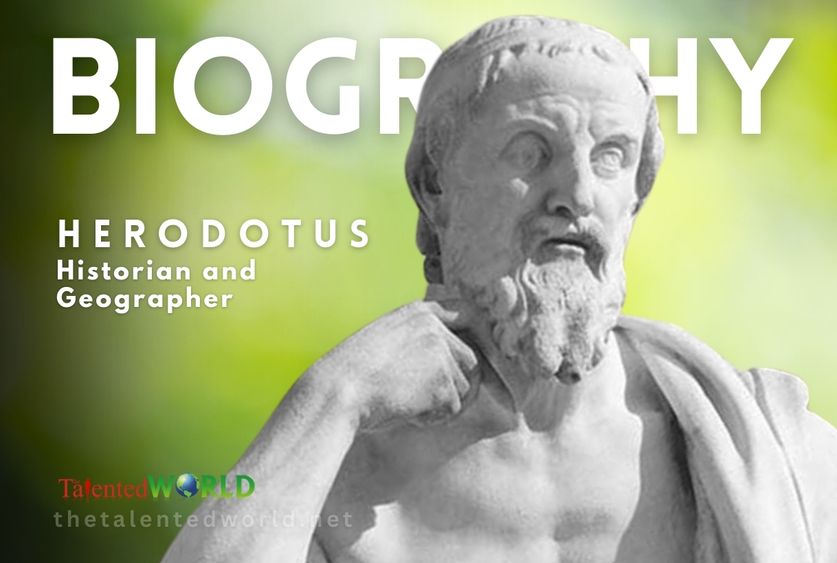| Name | Herodotus (Ἡρόδοτος) |
| Born | c. 484 BC, Halicarnassus, Caria, Asia Minor, Persian Empire (modern-day Bodrum, Turkey) |
| Died | c. 425 BC (aged approximately 60), Thurii, Calabria, or Pella, Macedon |
| Occupation | Historian |
| Notable Work | Histories |
| Parents | Lyxes (father), Dryotus (mother) |
| Relatives | Theodorus (brother), Panyassis (uncle or cousin) |
| Known For | Writing “Histories” – a detailed account of the Greco-Persian Wars and cultural, ethnographical, geographical, and historiographical background. |
| Contribution to History | First systematic investigation of historical events; described as “The Father of History” by Cicero. |
| Main Topics in “Histories” | Lives of prominent kings, famous battles (Marathon, Thermopylae, Artemisium, Salamis, Plataea, Mycale) |
| Legacy | Significant portions of “Histories” confirmed by modern historians and archaeologists. |
| Sources of Information about His Life | Mainly his own writings; supplemented by later sources like the Byzantine Suda. |
| Challenges in Compiling His Biography | Sparse and contradictory data; reliance on late and sometimes unreliable sources. |
| Childhood | Native of Halicarnassus; born around 485 BC; family possibly influential. |






